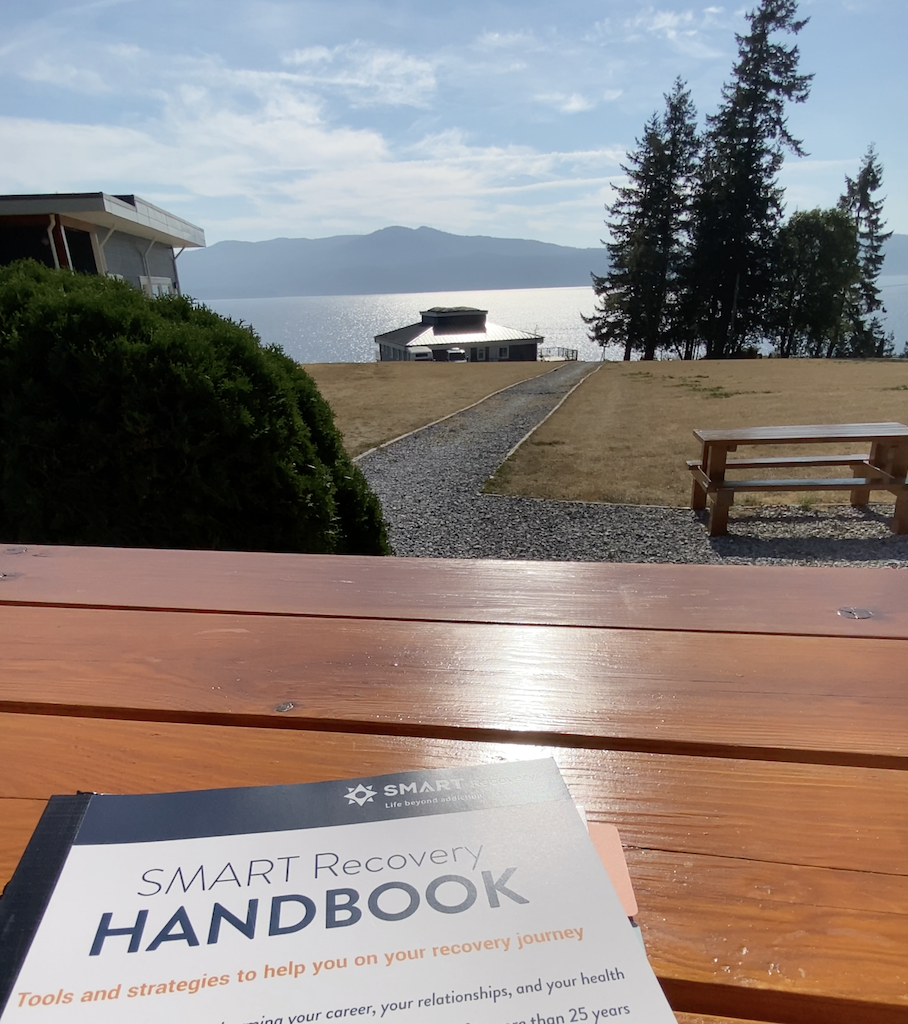Goal-setting can be an important part of healing from addiction in recovery. In this article, we explore some strategies for setting achievable goals for the new year around addiction, recovery, and growth.
Why Is Goal-Setting Important In Recovery?
Setting realistic goals is an essential part of addiction recovery, as it helps individuals stay focused, motivated, and on track toward lasting change.
However, it is also important to set realistic goals, as setting unrealistic goals can lead to disappointment and setbacks. With the start of a new year, it can be tempting to set lofty goals which we end up breaking, ultimately feeling worse about ourselves for having failed to meet our own expectations.
An Evidence-Based Approach To Goal-Setting
At Sunshine Coast Health Centre & Georgia Strait Women’s Clinic, we take an evidence-based approach to recovery. This includes looking at the science behind the motivating tools and strategies we use in recovery.
When we look at the evidence behind goal-setting, we see that setting specific, achievable goals can increase the likelihood of success in recovery.
As such, we encourage our own staff, clients, and anyone who is serious about goal-setting to take an intentional approach to creating and achieving goals. One of the most powerful tools for this is the SMART method of goal-setting.

Starting The Year With SMART Goals
The SMART method of goal-setting is a widely-used method for creating goals that are Specific, Measurable, Attainable, Relevant, and Time-bound. This method can be particularly useful for individuals in addiction recovery, as it helps to ensure that goals are realistic and achievable.
Here are some tips for goal-setting in the new year, using the principles of S.M.A.R.T.
- Make Your Goals Specific: Make sure your goals are specific and clearly defined. General goals like “stop drinking” can be effective for some people. But if you’ve set this goal in the past and have struggled to maintain it, a more specific goal, such as “attend two AA meetings per week” may be more useful. While it is important to have big, long-term goals, it is also important to break them down into smaller, more manageable steps.
- Make Your Goals Measurable: Having measurable goals allows you to track your progress. For example, instead of setting a goal to “improve my relationships”, set a goal to “have at least one positive interaction with a family member or friend per day.” This latter goal is far less abstract and much easier to determine if it’s been achieved.
- Make Your Goals Attainable: It’s important to set challenging, but realistic goals. Make sure your goals are attainable given your current circumstances, such as your time, your budget, your health & fitness, and any other limitations you may encounter in achieving them. There may be room to expand those boundaries, but it’s important to be realistic if you’re serious about reaching your goals.
- Make Your Goals Relevant: Make sure your goals are relevant to your overall recovery journey. For example, if you are working on improving your physical health, set a goal to exercise for 30 minutes three times per week. The goal needs to matter to you; remind yourself why this goal is personally important to you. In the case of physical health, you can think of things like longevity and quality of life. The more personally relevant your goal is, the more motivated you’ll be to achieve it.
- Make Your Goals Time-bound: Set a specific time frame for achieving your goals. This can help to increase motivation and accountability. For example, if your job is to seek professional addiction treatment for yourself or a loved one, set a specific date by which you can envision starting the program. Otherwise, it can be easy to just keep pushing things into a cloudy future time that may never end up arriving.

More Tips For Your New Year’s Goals In Addictions Recovery
Here are a few more tips for making and achieving your sobriety/healthier living goals for the new year:
- Focus on progress, not perfection; take it one day at a time
- Remember that recovery is a journey, not a destination.
- Share your goals with supportive people
- Connect with peers in recovery
- Seek professional support to help you set and achieve your goals
- Remember to be patient and kind to yourself
- Celebrate small victories along the way.
Conclusion
In short, if you’re looking for personal growth in this budding year, goal-setting can help. But being intentional (and smart!) about goal-setting is key to avoiding disappointment and maintaining your positive growth. By making use of the SMART goal-setting method, you can create goals that you’re more likely to achieve, ultimately letting you become who you want to be for 2023 and beyond.
Sunshine Coast Health Centre and Georgia Strait Women’s Clinic are world-class centers for addiction treatment and mental health. We take an approach that recognizes the importance of the physical, psychological, social and spiritual aspects of individuals in treatment and recovery. If you or someone you know is struggling with substance use and mental health, give us a call today.



